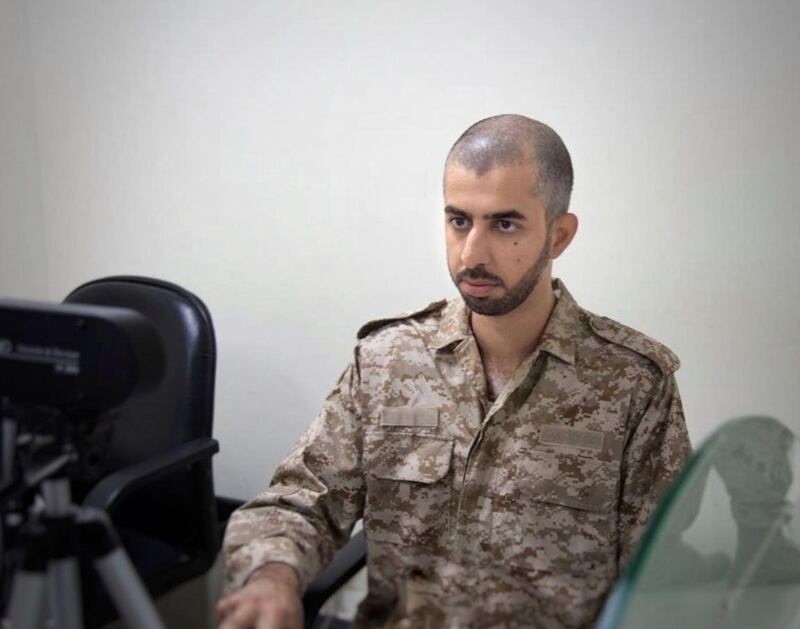An Emirati Cabinet minister has enlisted for national service, shaving his head and reporting to a military training camp.
Omar Al Olama, the Minister of State for Artificial Intelligence, on Sunday joined the tens of thousands of Emirati men aged 18 to 30 who must complete 16 months of training.
بكل فخر واعتزاز، نلت شرف الالتحاق بالدفعة الثالثة عشر من الخدمة الوطنية. خدمة الوطن هو أقل ما يمكن تقديمه لهذا الوطن العزيز. تمنياتي لإخوتي في الميدان بدورة نجدد فيها ولاؤنا لدولة الفخر والعطاء وقيادتنا الرشيدة. حفظ الله دولة الإمارات العربية المتحدة وأدام عليها الأمن والأمان pic.twitter.com/ekzrgxMU2O
— Omar Sultan AlOlama (@OmarSAlolama) January 12, 2020
“With great honour and appreciation, I have signed up to be drafted in the 13th cohort of the National Service draft,” he wrote on Twitter.
“Serving this nation, and giving back to the country that has always aspired to provide the best for every Emirati is the greatest pride of my life.”
Mr Al Olama will turn 30 on February 16 and signed up in the latest intake of conscripts, of which there are two each year.
Several members of the UAE's royal families have under gone national service.
Sheikh Ahmed bin Mohammed bin Rashid publicly joined in November 2014.
Before him was the Crown Prince of Ras Al Khaimah, Sheikh Mohammed bin Saud Al Qasimi, who enlisted on October 25 of the same year.
He was followed by Sheikh Mohammed bin Hamad Al Sharqi, Crown Prince of Fujairah, and Sheikh Rashid bin Saud Al Mualla, Crown Prince of Umm Al Quwain, who enlisted on October 30 at Sharjah’s Rahmania Recruitment Centre.
In addition to compulsory service for men aged 18 to 30, women in the same age group can volunteer to undertake a shorter training period, as can men aged 30 to 40.
National service was brought in to boost Emiratis’ fitness and foster a sense of discipline and national identity.
It has been credited with a 75 per cent fall in crimes committed by young Emiratis between 2014 and 2017.
The most significant reduction was in fights or assaults among those aged between 18 and 30 that led to death or disability.
In total, 61 cases were reported from 2014 to 2017, down from 274 in the three years before national service was introduced.
National service was undertaken for nine months when first introduced, rising to 12 months then 16 months from July 2018.







